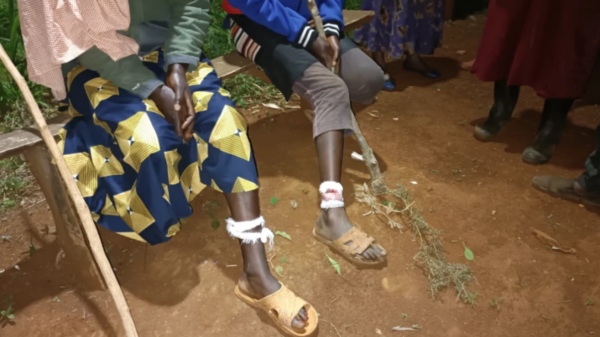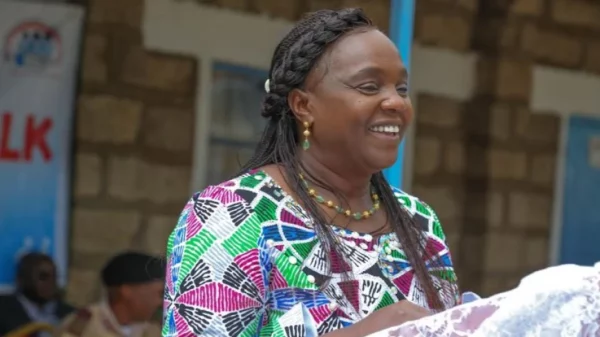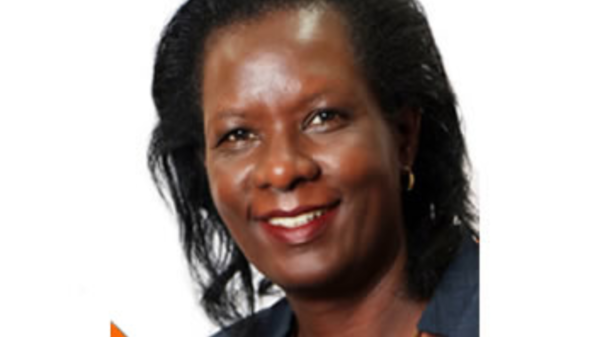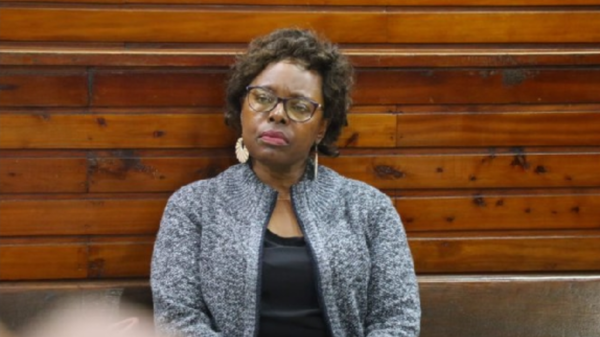• The quest to transform Bondo town into a major commercial hub has received a major boost following its elevation to a municipality
• Governor James Orengo on Wednesday inaugurated the Bondo Municipality charter, making it the third municipality in the county, joining the ranks of Siaya and Ugunja
• The elevation has, however, elicited mixed reactions of hope and fear among the residents and businesses of the new municipality
The quest to transform Bondo town into a major commercial hub has received a major boost following its elevation to a municipality.

Siaya Governor James Orengo
Governor James Orengo on Wednesday inaugurated the Bondo Municipality charter, making it the third municipality in the county, joining the ranks of Siaya and Ugunja.
The elevation has, however, elicited mixed reactions of hope and fear among the residents and businesses of the new municipality.
While some residents say they are now expecting to enjoy good road networks, enhanced solid waste management systems, better recreational facilities, and sufficient water among other services, some fear that the new status will occasion high taxes, rents, and land rates.
Currently, traders with large mobile money service shops are paying an annual licence fee of Sh10,000 while motor sales spare outlet shops are expected to pay Sh35,000 according to the proposed 2023 Finance Bill.
Owners of mega hyper wholesale or supermarkets with restaurant and distribution services in Bondo will pay Sh108,000 in the new tax proposals.
Kennedy Oduor, a resident and a businessman in the town says there is hope for improved services.
“There were a number of businesses that collapsed due to lack of accessibility, but with the tarmacking of several roads within the town, there is value for money,” said Oduor.
County Assembly Speaker George Okode termed the elevation as a milestone that brings with it immense benefits.
“Courtesy of this, Bondo will attract key donors like the World Bank which are critical in financing infrastructure development in municipalities,” he said, adding that this further spurs growth and enhance service delivery.
Siaya Senator Oburu Oginga lauded Governor James Orengo’s move to confer Bondo a municipality charter, saying the new status was long-awaited.
Oburu, a former Bondo MP says when he floated the idea of relocating the main market to the current location-Migingo market, there was a lot of resistance and many thought he was out of his mind.
Some traders even refused to relocate to the new location, arguing that the new place was not strategic for business.
“I am happy that more than 15 years later, it turns out that what some people thought was fantasy is now a glaring reality,” said Oburu.
He added that during his time as the MP, he laid down infrastructures that would initiate room for the town’s future expansion.
He explained, “We laid several institutions of higher learning as well as bringing the first banking facility – Equity Bank in Bondo. Today, there are more than two banks in the town.”
Located 64 kilometres West of Kisumu, Bondo was established in the early 1920s as a market centre, with its entire economy revolving around the fish from Lake Victoria.
The town lies at the heart of a fishing zone and major fish landing beaches, with its strategic location from the lake generating a multiplier effect in infrastructural development.
In the 1990s, it became the headquarters of the then Bondo district which was carved out of the larger Siaya District.
For more than two decades, the town has developed and expanded. It is currently an emerging education hub hosting Jaramogi Oginga Odinga University of Science and Technology, Kenya Medical Training College, Bondo TTC, and Bondo TTI.
With the inception of devolution, the administrative centre that played second fiddle to other urban centres has also become a business hub preferred by traders, banking institutions, and micro-finance organisations.
According to Mr Philip Mbindyo, the acting CEO of the Bondo Municipality Board, the new status places Bondo in a better position to get more funds. Mbindyo says sanitation is a serious problem in the county with only 5.9 per cent of the households with access to piped water while the latrine coverage stands at 75.3 per cent.



























